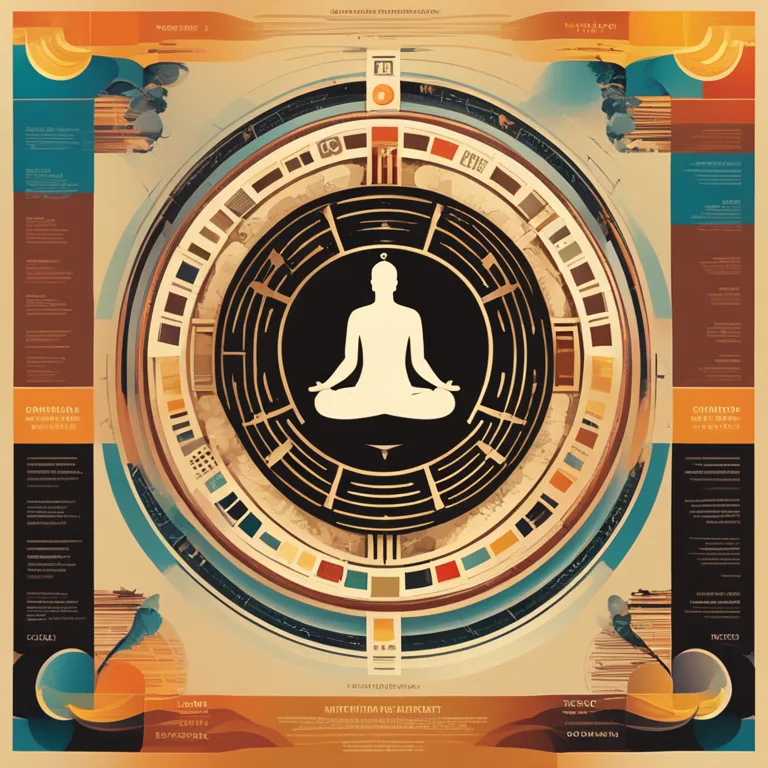
Easing Pain With Meditation
Discover how mindfulness meditation can be a strategic approach to managing chronic pain through inner peace and mental clarity. Learn effective techniques for pain relief in our comprehensive guide.
article by Hina Kurosawa
Ancient Practice Meets Modern Pain Management
Meditative practices have roots deep in history, with mindfulness being a core element in various cultural traditions. In contemporary times, mindfulness meditation has gained traction as an evidence-based technique in the realm of pain management. This holistic approach facilitates a mind-body connection that can alter perceptions of pain. Mindfulness helps in acknowledging pain without emotional aggravation, reducing the overall distress. Various clinical studies now support meditation as a beneficial adjunct to conventional medical treatments for chronic pain sufferers.

Mindfulness Meditation: An Overview
Mindfulness meditation involves the purposeful and non-judgmental focus of one's attention on the present moment. It usually requires one to concentrate on breathing, bodily sensations, or mantras, to anchor the mind away from distracting thoughts. The practices can vary from the well-known seated meditation to walking meditations or body scans. The key attribute of this practice is the gentle acknowledgment and subsequent release of intrusive thoughts, enabling a serene mental environment for pain processing.

A Neurological Perspective on Pain Relief
Neurologically, mindfulness meditation has been shown to impact the brain's pain processing centers. It can reduce activity in the Default Mode Network (DMN), an area associated with mind-wandering and the amplification of pain through negative thoughts. By training the brain to disengage from these pain-inducing mental patterns, practitioners can potentially experience a reduction in pain sensations and an enhanced quality of life as observed in mindfulness meditation research of 2024 and beyond.

Integrating Mindfulness into Your Routine
The integration of mindfulness into daily life for pain management does not require excessive time commitments. Short, frequent sessions of focused breathing or conscious awareness can lay the foundation. Gradually, as one's proficiency increases, sessions can be elongated or multiple forms of mindfulness can be explored. Consistency is crucial in achieving significant results, with even brief daily sessions contributing to pain relief and improved mental well-being.

Rediscovering Comfort and Control
Regular mindfulness practice empowers individuals to redefine their relationship with pain. It inspires an approach of observation and acceptance, rather than resistance and frustration. Over time, practitioners often report a newfound sense of control over their pain, leading to a decreased need for pharmacological interventions. The psychological benefits additionally include reduced anxiety and depression, which are common comorbidities with chronic pain conditions.
Practical Tips for Mindfulness Beginners
For those new to mindfulness, it is advised to start with guided sessions, which are widely available in digital formats or through local classes. Seek a calm environment free of distractions and allocate a specific time of day for your practice. Utilize simple techniques such as counting breaths or performing an intentional body scan. Be patient with yourself—achieving mindfulness is a journey, not a race. With time, pain may become a less invasive and dominating factor in your life.
Conclusion
As we deepen our collective understanding of integrative pain management, the efficacy and simplicity of mindfulness as a sustainable practice become increasingly apparent. In an age where the interconnectivity of mental and physical health is acknowledged, mindfulness meditation stands out as a compassionate and side-effect-free tool for those faced with chronic pain.
Published: 1/8/2024
Modified: 1/8/2024
More predictions
Come back here soon to learn more about yourself and your future


The Harmony of Mindful Breathing in Meditation
Delve into the symbiotic relationship between meditation, mindfulness, and breathwork to achieve inner peace and clarity.


Mindfulness Meditation Benefits for High Schoolers
Discover how mindfulness meditation can help high school students navigate academic pressure, enhance focus, and improve overall wellbeing.


Harmonizing Life: Meditation, Mindfulness & Balance
Discover the intertwining paths of meditation and mindfulness for achieving a balanced life in this insightful article.